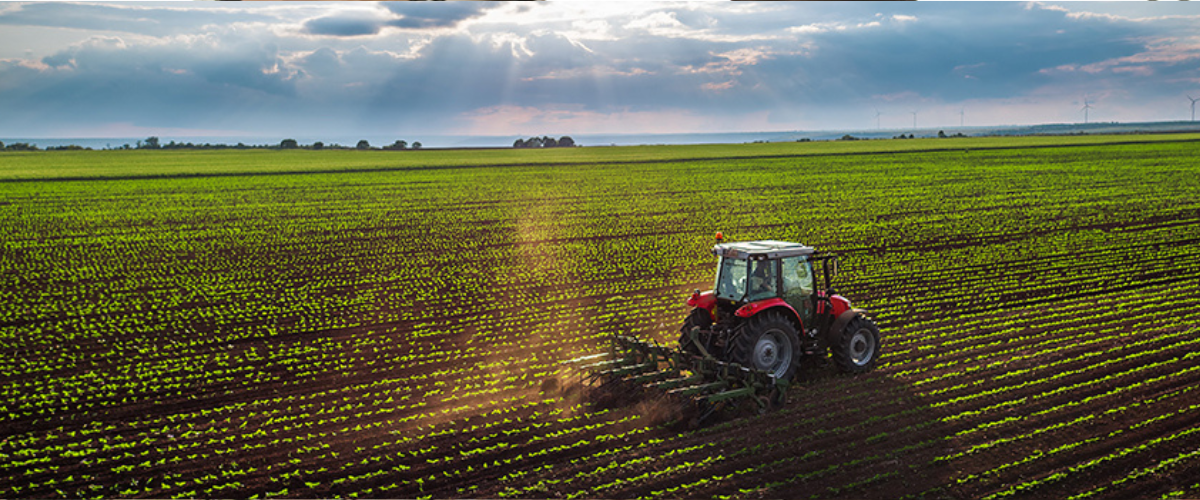
The coronavirus is having a big impact on farmers in the Midwest and throughout the United States as they face a shortage of outlets to sell their products. Restaurants have shut down, schools have closed, and some meat and dairy processing plants have paused operations, ultimately leading to lower commodity prices and higher expenses for producers.
Across the United States, corn and soybean prices have dropped 10%–15%. Cattle prices are down 25%, hogs are down 31% and milk is down 25%–35%. Many ethanol refineries have even shut down for the time being, adding to the strain on the corn industry.
As meat processing facilities close, some farmers must ship their animals hundreds of miles to get to the nearest operational facility. This has led to increases in shipping costs. Even worse, because of facility shutdowns some hogs have had to be euthanized.
Lower sale prices and higher costs of operation are putting a strain on farmers’ cash flows. To help them deal with the added stress caused by the coronavirus crisis, there are government programs available to help them financially during this time.
The Paycheck Protection Program (PPP) through the Small Business Administration (SBA) has been able to help some farmers partially cover their costs. There are additional resources and programs available through the SBA and the United States Department of Agriculture to help them through this time until market prices recover.
The Economic Injury Disaster Loan (EIDL) program through the SBA has been a lifesaver for some farmers who are facing cash flow problems because of the coronavirus. Farmers have been able to receive anywhere from $25,000 to $250,000 in assistance from the federal government through this program.
These loans are paid back over 30 years with a fixed rate of 3.75%. No payments are required for the first 12 months, and then payments are made monthly, making this a cheap and flexible funding option.
In May, the U.S. Department of Agriculture introduced the Coronavirus Food Assistance Program (CFAP), which provides up to $16 billion in direct payments to deliver relief to farmers and ranchers impacted by the pandemic.
The first $9.5 billion is provided through the Coronavirus Aid, Relief, and Economic Stability (CARES) Act to compensate farmers for losses due to price declines that occurred between mid-January and mid-April 2020. The CFAP also provides support for specialty crops that had been shipped during the same time period but have spoiled due to the loss of marketing channels.
The second source of funding uses the Commodity Credit Corporation Charter Act to compensate producers for $6.5 billion in losses due to ongoing market disruptions.
The USDA is also partnering with regional and local distributors whose workforces have been impacted by the closure of restaurants, hotels and other food service entities to purchase $3 billion in fresh produce, dairy, and meat and deliver boxes of food to Americans in need.
There is a payment limitation of $250,000 per person or entity for all commodities combined. To learn more about the eligibility requirements and to apply, visit https://www.farmers.gov/cfap.
It is important for farmers to keep in contact with their bankers during the coronavirus crisis. Changes are frequently made to federal assistance programs — sometimes even on a daily basis — and your ag banker can help you stay up to date on those changes. Even for programs that are not applied for through your bank, such as the EIDL and the CFAP, your banker can help explain how the program will help your financial situation and assist with the application process.
Your banker can also help you manage debt you already have. They may be able to extend payments if needed, provide interest-only payments for a limited time or provide temporary funding to help your farm out until everything gets back up and running.
At Northwest Bank, our ag bankers take pride in working very closely with farmers in Iowa and Nebraska. We develop strong relationships with each one of our clients and help them solve the problems they face one-on-one.
Contact an ag banker today to learn more about your options for improving your cash flow during the coronavirus crisis.
Experience the Northwest Bank difference--the better banking experience. Contact us today and let's build a brighter financial future together!
Mon - Fri: 7:00 AM - 7:00 PM CST
Sat: 8:00 AM - 12:00 PM CST
General Support: 800-678-4105